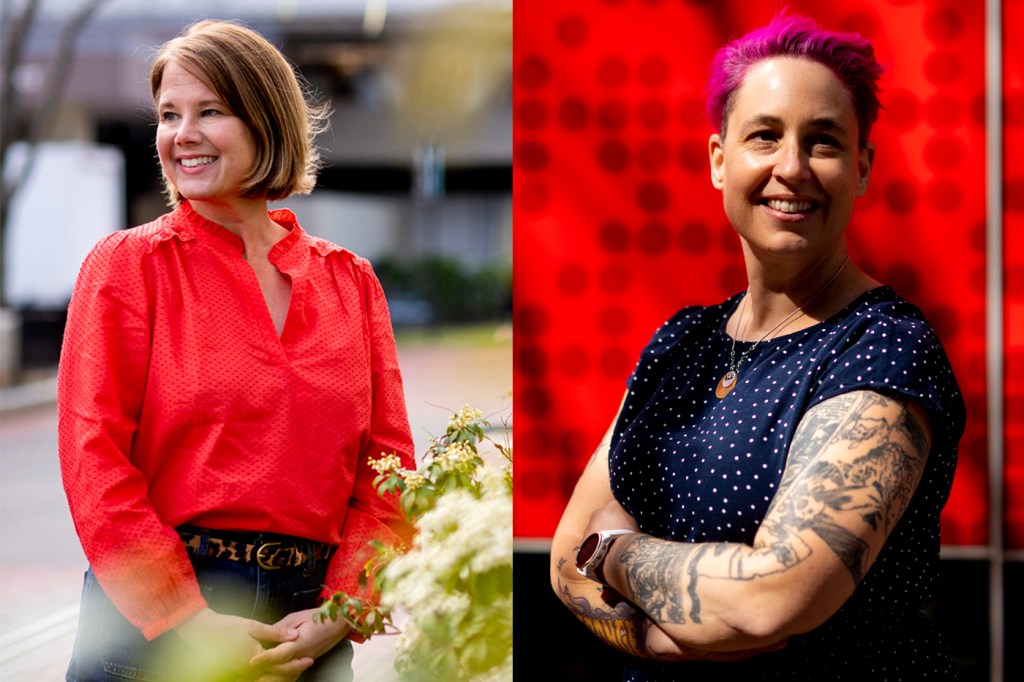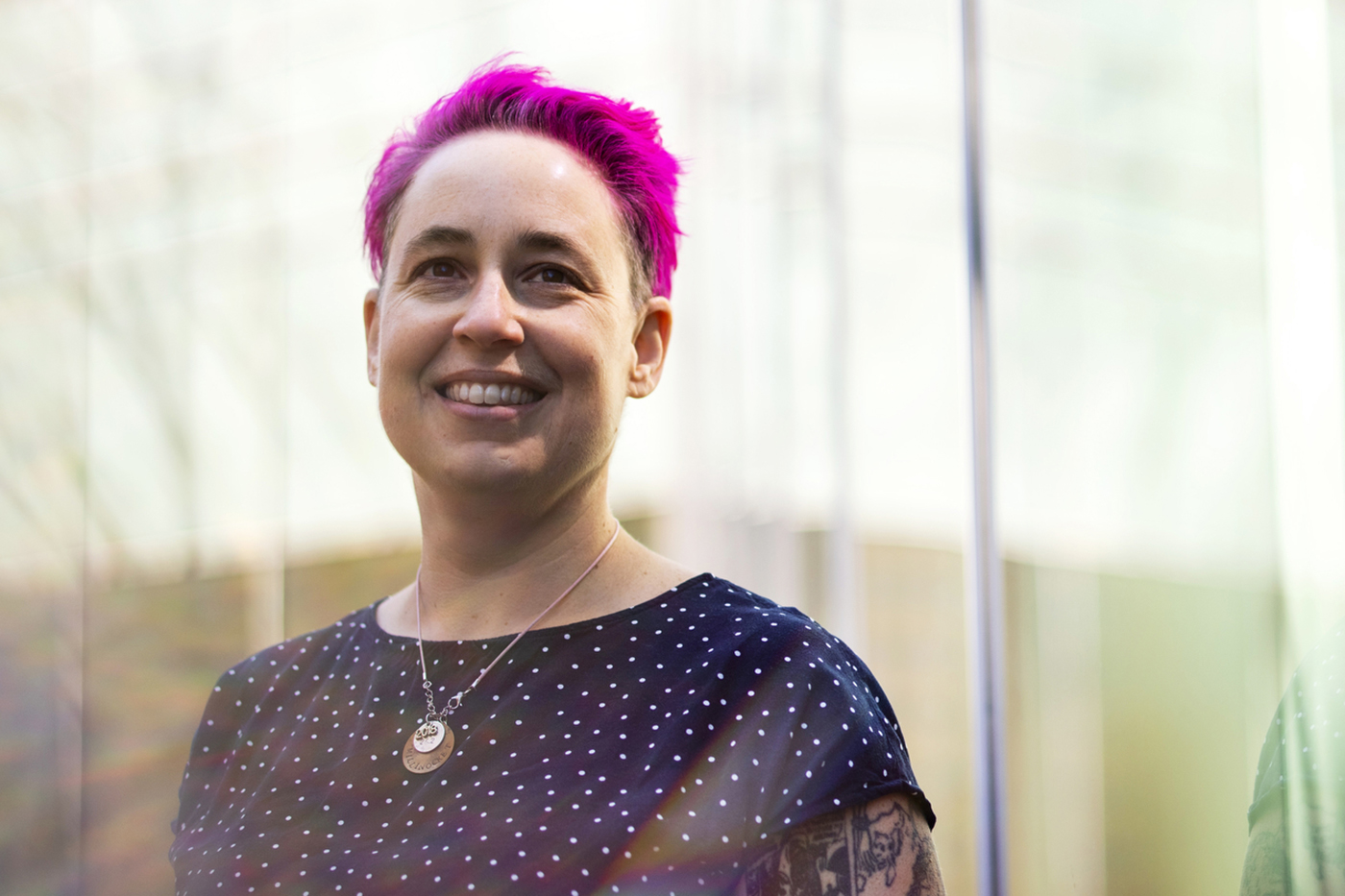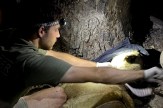They inspire women to code and teach lifelong learning skills

When Laney Strange began her career in computer science as an undergraduate student at Simmons College, a women’s college, she almost forgot she was entering into a male-dominated field.

Laney Strange, associate teaching professor in Khoury College, was recently honored with the University Excellence in Teaching Award. Photo by Ruby Wallau/Northeastern University
“My first four years of computer science were collaborative and not competitive,” says Strange, an associate teaching professor of computer science at Northeastern. “I never felt excluded.”
But classes full of female coders are anomalies, even with so many initiatives to include more women in computer science. After moving on to graduate school, Strange was often the only woman in the classroom.
“It’s intimidating to be the only one,” she says. “And then you hear the comments that every underrepresented person has heard: ‘You must be here to fill some diversity quota.’”
Strange has dedicated her career to creating inclusive environments for underrepresented people in computer science through her teaching style and her involvement in diversity advocacy groups. This year, she is one of two professors to receive the Excellence in Teaching Award from Northeastern for her accomplishments, an honor professors must be nominated for by their students.

Missy McElligott, associate teaching professor and director of undergraduate studies for biology, was recently honored with the University Excellence in Teaching Award. Photo by Ruby Wallau/Northeastern University
Missy McElligott, associate teaching professor of biology, is this year’s other recipient of the Excellence in Teaching Award for her comprehensive teaching approach that reaches beyond the fundamentals of biology.
“Being a successful teacher in biology means teaching students how to learn,” she says. “Teaching isn’t magic. There’s evidence behind effective teaching strategies. Realizing that really opened up the world for me.”
McElligott prioritizes the skills students will need to continue learning throughout their lives, a requirement for any career in biology.
The information a student learns in a first-year biology class might not stick forever, she says. But, for example, teaching students the ability to read and comprehend primary literature and original research papers, which is the focus of one of McElligott’s classes, can serve students well beyond graduation.
Many of McElligott’s students who have started careers in science have written back to her saying how thankful they are to have acquired these skills, she says.
McElligott’s interest in teaching developed while she was completing her doctorate in biology at Northeastern. During this time, she noticed she liked science in the classroom more than in the lab.
“It dawned on me that the educational aspect was the exciting part for me,” she says. “Being in a lab felt solitary compared to the classroom, which felt collaborative. I really appreciate the community aspect.”
Reflecting on the award, McElligott feels flattered and full of gratitude for her students.
“I’m so thankful they recognized the effort and the commitment that goes into teaching,” she says. “I know how busy my students are, so even the fact that they took the time to fill out the evaluations, I’m so grateful.”
For media inquiries, please contact media@northeastern.edu.





